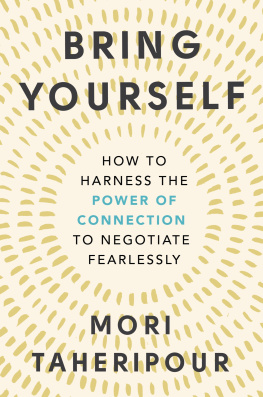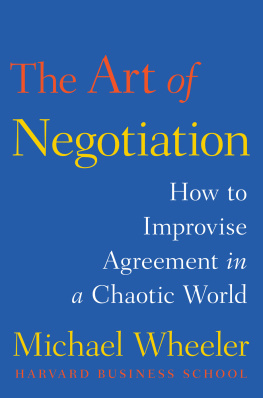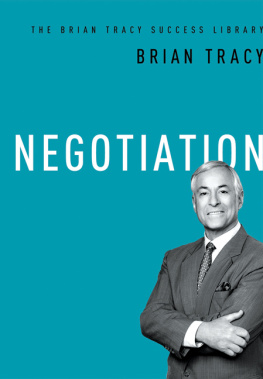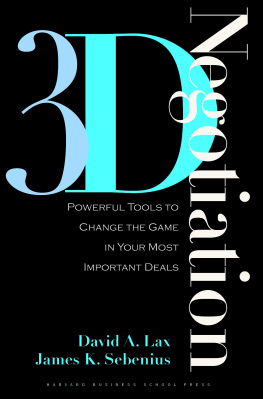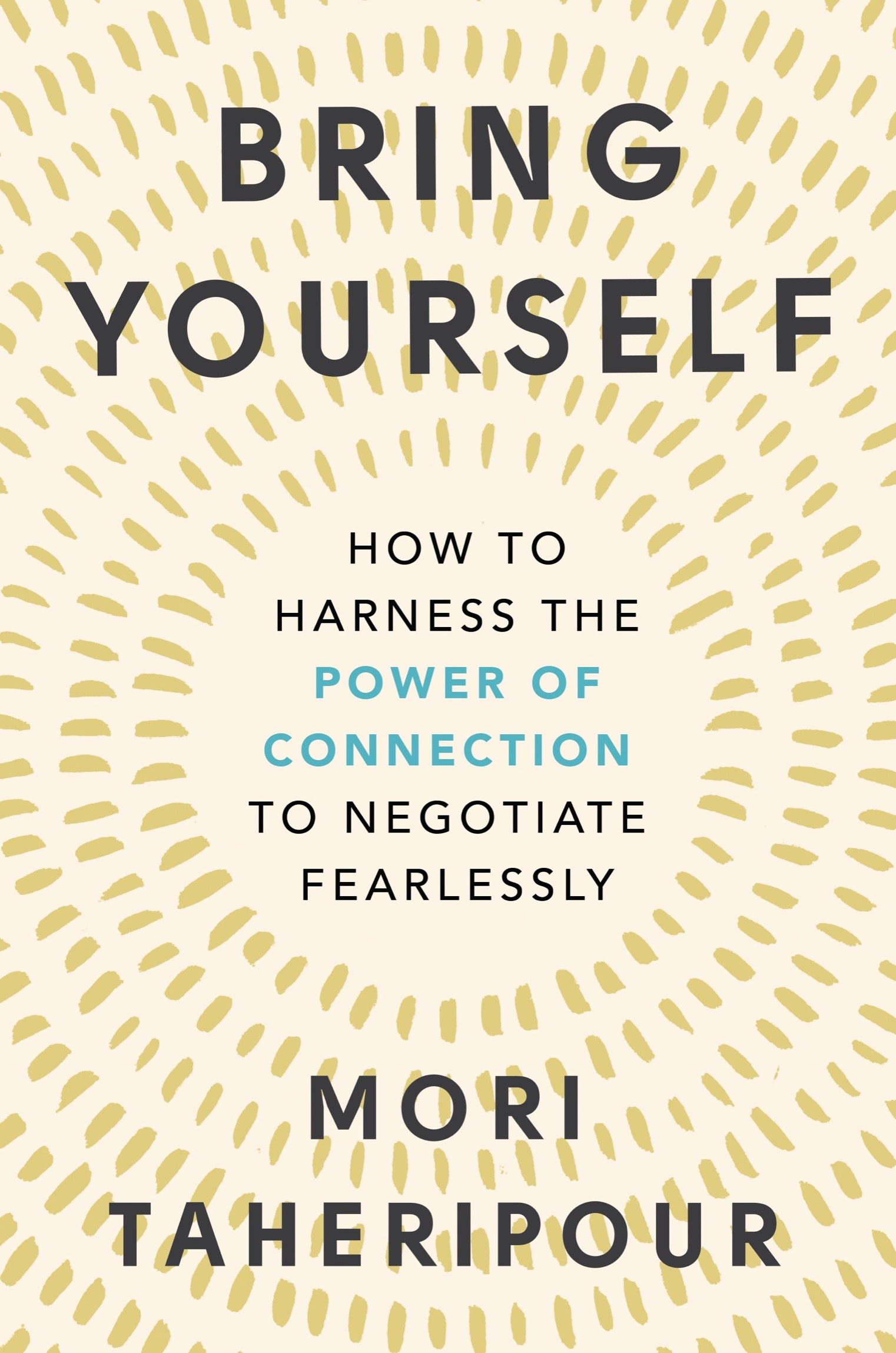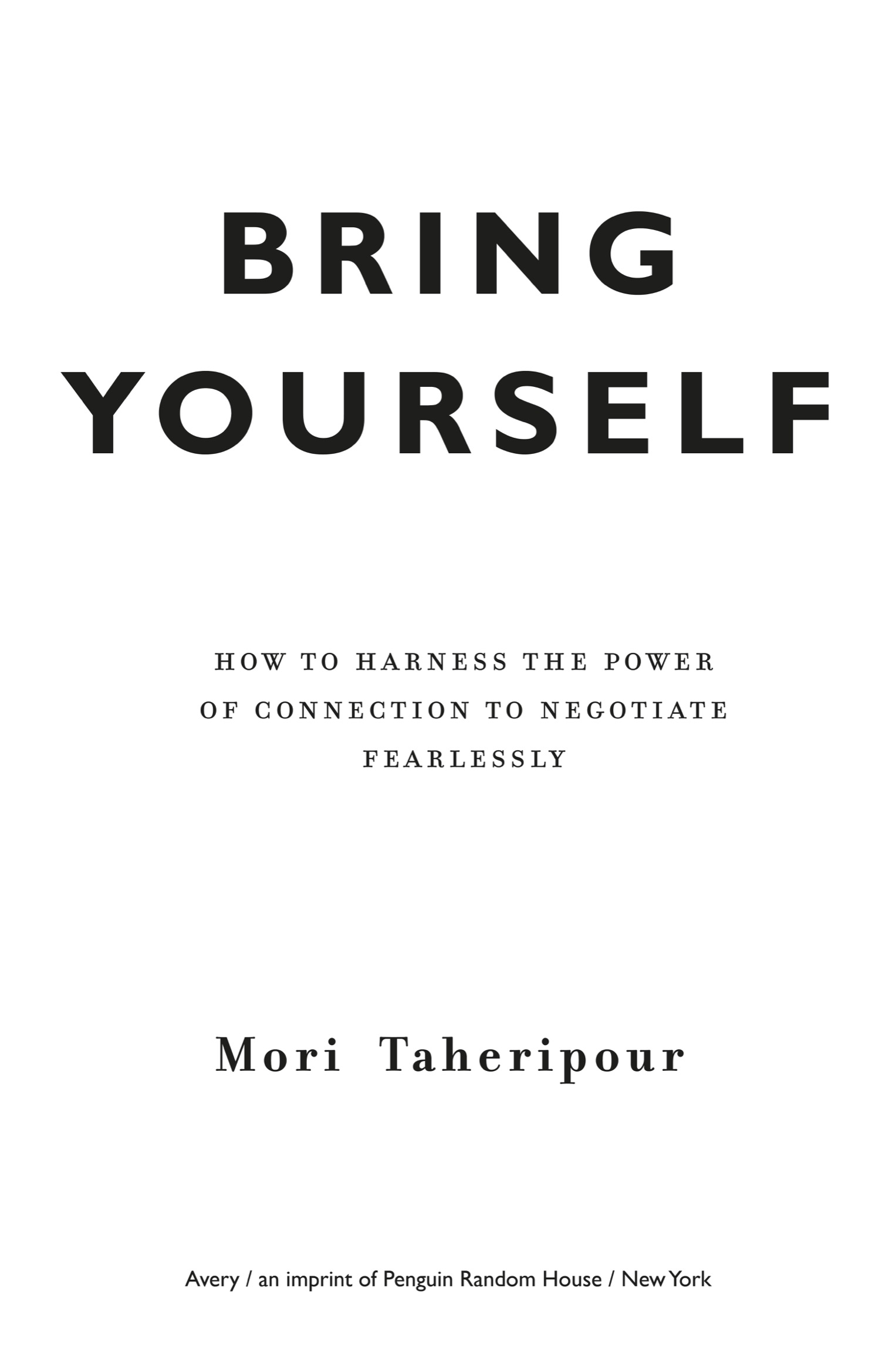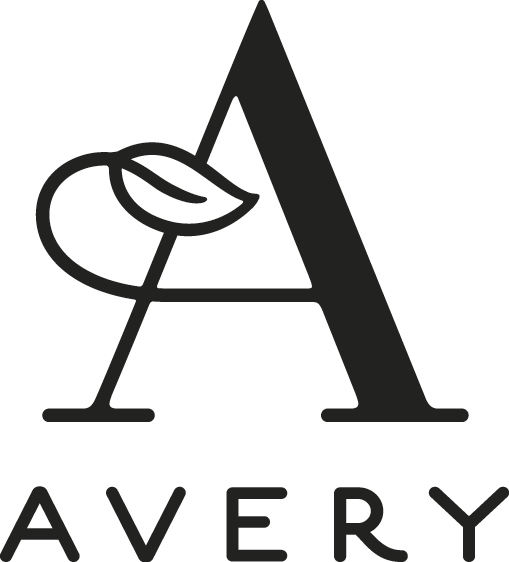Mori Taheripour - Bring Yourself: How to Harness the Power of Connection to Negotiate Fearlessly
Here you can read online Mori Taheripour - Bring Yourself: How to Harness the Power of Connection to Negotiate Fearlessly full text of the book (entire story) in english for free. Download pdf and epub, get meaning, cover and reviews about this ebook. year: 2020, publisher: Penguin Publishing Group, genre: Detective and thriller. Description of the work, (preface) as well as reviews are available. Best literature library LitArk.com created for fans of good reading and offers a wide selection of genres:
Romance novel
Science fiction
Adventure
Detective
Science
History
Home and family
Prose
Art
Politics
Computer
Non-fiction
Religion
Business
Children
Humor
Choose a favorite category and find really read worthwhile books. Enjoy immersion in the world of imagination, feel the emotions of the characters or learn something new for yourself, make an fascinating discovery.
- Book:Bring Yourself: How to Harness the Power of Connection to Negotiate Fearlessly
- Author:
- Publisher:Penguin Publishing Group
- Genre:
- Year:2020
- Rating:4 / 5
- Favourites:Add to favourites
- Your mark:
Bring Yourself: How to Harness the Power of Connection to Negotiate Fearlessly: summary, description and annotation
We offer to read an annotation, description, summary or preface (depends on what the author of the book "Bring Yourself: How to Harness the Power of Connection to Negotiate Fearlessly" wrote himself). If you haven't found the necessary information about the book — write in the comments, we will try to find it.
Mori Taheripour has taught negotiation to for fifteen years as an award-winning professor at the Wharton School of Business, and an instructor with Goldman Sachss 10,000 Small Businesses Program. Contrary to the conventional wisdom about what makes a good negotiator--namely, to be aggressive, intimidating, and unemotional--Taheripour has a radically different perspective. What shes found in her classes and in her own deal-making is that the best negotiators are empathetic, curious, and present, and that the essence of bargaining isnt the transaction, but the conversation and the human connection. Its when we bring our whole, authentic selves to the table that we can both advocate for ourselves fearlessly and find creative solutions so everyone wins.
Taheripour has seen the power of this mindset shift firsthand. As an immigrant who arrived in the United States from Iran as a child, she has experienced the impact of cultural expectations on negotiation. In her classes and in her consulting work, her students and clients have seen personal breakthroughs as they face the fears and false narratives that have been holding them back. Taheripour argues that whether we consider ourselves good negotiators or not, we must have the courage to engage, because bargaining is crucial to every aspect of our lives. We negotiate boundaries with our parents and partners, bedtimes with our kids, dog treats with our dogs. We even negotiate with ourselves every time we make a pro/con list or have to weigh a major decision. Negotiation is how we problem solve and how we find our voice.
With eye-opening and empowering stories throughout, Bring Yourself will give readers the confidence to feel comfortable at the table, both in work and in life.
Mori Taheripour: author's other books
Who wrote Bring Yourself: How to Harness the Power of Connection to Negotiate Fearlessly? Find out the surname, the name of the author of the book and a list of all author's works by series.

